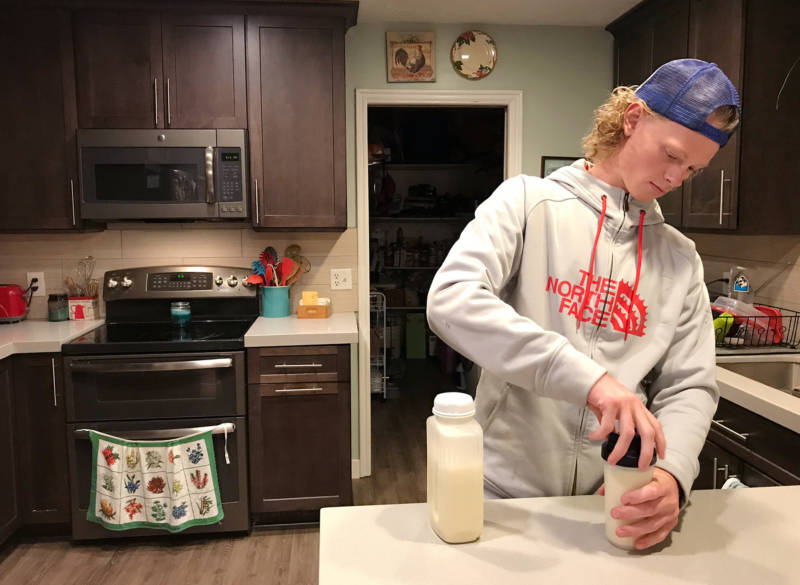“It’s a new world of being able to use synthetic biology to program microbes to treat diseases, which I believe is the future,” says Pamela Silver, a synthetic biologist at Harvard Medical School in Boston.
Scientists hope to genetically modify microbes from the human microbiome to treat a range of diseases, including digestive disorders like ulcerative colitis and inflammatory bowel disease.
“Microbes are something that we as synthetic biologists see as highly engineer-able. We understand how to engineer microbes so it seems like the perfect interface between synthetic biology and health,” Silver says.
One company, ActoBio Therapeutics of Ghent, Belgium, has just started using genetically engineered microbes to try to treat Type 1 diabetes. Another one, Oragenics of Tampa, Fla., is testing a modified bacterium to treat mouth sores caused by cancer chemotherapy. And Osel of Mountain View, Calif., hopes engineered microbes could prevent HIV infections.
Reeder is helping test modified E. coli bacteria. While some types of E. coli can cause serious illness, the E. coli type being used in the study is found in the human gut.
“It is a naturally occurring probiotic bacteria,” says Caroline Kurtz, a scientist at Synlogic, a Cambridge, Mass., biotech company, which created the modified version of the organism.
“We can enhance its function by introducing genes [or] by changing genes that are there, and design the cells to either produce something or consume something that may be beneficial for a patient,” Kurtz says.
Synlogic has also engineered E. coli to rid life-threatening levels of ammonia from the bodies of people with cirrhosis of the liver.
“This is a really exciting new modality that allows us to think about therapies in a new way and really look at diseases in a whole new way: a living medicine that can respond to its environment,” Kurtz says.
Preliminary research involving mice and healthy adults published recently in the journal Science Translational Medicine indicates Synlogic’s E. coli are safe and may work. So the company is now testing them in patients with cirrhosis and PKU.
Reeder admits he was a little nervous when he first heard about all this.
“When you hear about E. coli you think: sickness, throwing up. So I was a little bit skeptical. I wasn’t sure what to think because I was going to be ingesting E. coli,” Reeder says.
But the more he learned about it, the more excited Reeder got about trying the engineered microbes.
“I think that’s very cool that they found a way to use a natural probiotic that’s found in the digestive tract to help the human body,” Reeder says.
Reeder spent the weekend in the clinic so doctors could monitor him closely and run tests as he ingested what normally would be dangerous amounts of protein. He then swallowed either the engineered E. coli or a placebo. He wasn’t told which.
“It was liquid solution. It tasted kind of like mint taffy. It was pretty sweet,” he says.
Reeder thinks he got the engineered microbes.
“I could immediately feel my cognitive abilities falling down after drinking the 20 grams of protein. And then I took the drug and I started feeling a lot better. I obtained more energy and my cognitive abilities got quicker,” he says.
“It was really cool to feel that. I could tell it was working. It was pretty cool,” Reeder says.
Much more research is needed to know whether genetically engineered microbes are safe and really work. But Synlogic hopes to report results from the cirrhosis and PKU studies later this year.
Before any of these experimental treatments could be used routinely, they would have to be reviewed and approved by the Food and Drug Administration. That’s a process that could take years.
Copyright 2019 NPR. To see more, visit https://www.npr.org.
9(MDAxOTAwOTE4MDEyMTkxMDAzNjczZDljZA004))

9(MDAxOTAwOTE4MDEyMTkxMDAzNjczZDljZA004))
